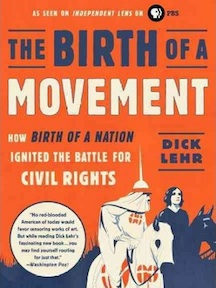By Austin P. Harrison
It’s been over a century since D.W. Griffith’s The Birth of a Nation (1915), a drama inspired by the American Civil War and Reconstruction, debuted for the world to see. Running longer than three hours including intermission, it was the first American film epic, offering a visual grandeur and exciting an emotional intensity unprecedented for the cinema of the time. Aside from its historic innovations, the film is most remembered for its vitriolic racism, casting the Ku Klux Klan in a heroic role, and using actors in blackface to portray African-American men as inherently brutal and licentious.
Originally titled The Clansman, Griffith’s film lionized the KKK as masked crusaders who valiantly protect the sanctity of the white South (particularly its women) from the “evils” of the Northern Carpetbaggers and the black population. The film inspired a resurgence of the KKK, whose members sought to carry out the movie’s aspirations in Sundown towns all across the nation, including the practice of cross burring borrowed from a scene in the film.
As historian Thomas Cripps puts it in Slow Fade to Black, “[The Birth of a Nation] was at once a major stride for cinema and a sacrifice of black humanity to the cause of racism.”
Despite the film’s overwhelming success during its time, and its blatant message of white supremacy, The Birth of a Nation became a catalyst for several waves of social and political protest and dissent spanning the century that followed its release. The Birth of a Movement, a new documentary from Susan Gray and Bestor Cram, is the latest cinematic installment of this dissent, and juxtaposed against The Birth of a Nation it portrays the struggle for black humanity in America.
The Birth of a Movement examines the controversy that surrounded Griffith’s film, specifically the work of William M. Trotter (ΦBK, Harvard University, 1895), founder and editor of the African-American newspaper The Boston Guardian. Trotter famously fought against the film and garnered nationwide support for his cause.
The Birth of a Movement also offers insight from accomplished contemporaries in the film industry who have consistently worked to advance the conversation about social justice in our nation—Spike Lee, Reginald Hudlin, and Dj Spooky, among others, are featured in the documentary.
As The Birth of a Nation inspired African-Americans to organize against the racial injustice celebrated in and inspired by the film, The Birth of a Movement has the potential to create the necessary shift in our collective dialogue about race relations, media, and the power of the film industry.
The Birth of a Movement premiered on PBS’s Independent Lens February 6. It is now available for viewing online.
Austin P. Harrison is a junior at George Mason University majoring in environmental science with a concentration in conservation. George Mason is home to the Omicron of Virginia Chapter of Phi Beta Kappa.




